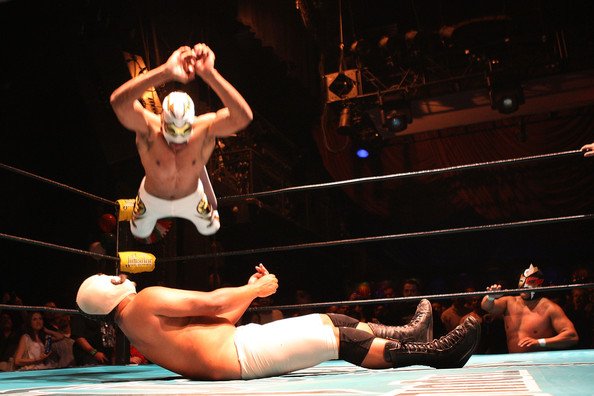JPMorgan Chase Foreclosures Of Old Washington Mutual By JPMorgan Chase Are Easy To Beat. However, You Need A Legal Team that Knows What They Are Doing
 JPMorgan Chase foreclosures are beatable. Why? Well. it all began when JPMorgan Chase acquired Washington Mutual’s mortgage assets in 2008. Little did they know that a decade later they would still be fighting costly foreclosure battles over them. These legal battles have become so costly for JPMorgan Chase they began selling the loans and the servicing rights at fire-sale prices.
JPMorgan Chase foreclosures are beatable. Why? Well. it all began when JPMorgan Chase acquired Washington Mutual’s mortgage assets in 2008. Little did they know that a decade later they would still be fighting costly foreclosure battles over them. These legal battles have become so costly for JPMorgan Chase they began selling the loans and the servicing rights at fire-sale prices.
JPMorgan Chase became so desperate to dump these mortgages, they are selling them in the middle of foreclosure litigation. I have already had this happen in four of my foreclosure cases involving old Washington Mutual loans.
JPMorgan Chase lawyers have also purposely postponed trial dates just so they could sell the loan at top dollar.
Chase and their lawyers know most of these mortgages are unenforceable and are garbage. They have their lawyers file the foreclosure anyway under the assumption that homeowners and their lawyers are idiots. After all, most attorneys doing foreclosure defense are idiots. Foreclosure mill attorneys are also betting they can intimidate the judge.
There are multiple ways to beat a foreclosure of an old Washington Mutual loan. However, its a herculean endeavor that you don’t want to attempt as a Pro-Se litigant. I know because I have kicked JPMorgan Chase’s ass on several of these files and I know what I’m doing.
I also have an external hard drive containing 500 GB of arguments, and depositions. The hard drive also contains Linkedin profiles and dossiers of former Washington Mutual executives that are no longer available. Who scrubbed them is up for debate but all evidence points to JPMorgan Chase. A few of these former Washington Mutual executives went to work at JPMorgan Chase during the financial crisis.
I have compiled the best and simplest ways to beat a foreclosure of an old Washington Mutual Loan.
Step 1: The Washington Mutual Mortgage
JPMorgan Chase or whoever bought the loan has serious issues with the recordation of these old WaMu mortgages. Therefore, there are a number of ways to attack the mortgage lien itself. You will want to check what legal precedent before you argue this. Some state courts base standing on mortgage recordation where others base standing strictly on the Promissory Note.
No Mortgage Assignment
In some cases, JPMorgan Chase failed to record mortgage assignments into their name with the county. This creates a serious issue for the foreclosing party if the lien is still in Washington Mutual’s name. As we all know, Washington Mutual has been officially dead for five years.
JPMorgan Chase cannot file any mortgage assignments. The FDIC only gave JPMorgan Chase until December of 2014 to assign the liens away from Washington Mutual. JPM-Chase or the current alleged debt holder would then have to bring a breach of contract civil suit. This opens up a plethora of defenses not allowed under general foreclosure litigation.
JPMorgan Chase Foreclosures Usually Contain Faulty Mortgage Assignments
In the early years of the financial crisis, foreclosure mill attorneys hired by JPMorgan Chase argued they had Operation of Law. Attorneys argued JPM-Chase was not required to record mortgage assignments. They argued JPMorgan Chase bought Washington Mutual lock, stock, and barrel. This was not entirely true. JPMorgan Chase purchased Washington Mutual assets within days of Washington Mutual going into FDIC receivership.
Lawyers made these arguments until December of 2012 when the Michigan Supreme Court ruled in Kim v JPMorgan Chase. The Court ruled that JPMorgan Chase was required to record mortgage assignments on the public record.
The court ruled JPMorgan Chase did not acquire Washington Mutual as a corporate entity. Instead, they acquired assets of the company through a third party, the FDIC. The court ruled a chain of ownership of the mortgage must be recorded with the Register of Deeds. Other states soon followed. This created a mad dash by JPMorgan Chase lawyers to record mortgage assignments.
In their mad dash to cover their ass, JPMorgan Chase lawyers ignored the white elephant in the room. That elephant was the Washington Mutual bankruptcy that was playing out in federal court in Delaware.
The Bankruptcy Court finalized plans to transfer all of all remaining Washington Mutual assets to WMI Liquidating Trust. This order went into effective 3/19/2012. This was months before the Kim ruling in Michigan.
The order also set a date to close out the FDIC responsibilities as the Receiver for Washington Mutual. The court set the date of 12/23/2014 as the final day the FDIC could act as Attorney-In-Fact for Washington Mutual.
The lawyers used by MFI-Miami successfully argued that mortgages assigned after 3/19/2012 needed to come from WMI Liquidating Trust. They argued the FDIC no longer had an interest.
JPMorgan Chase Puts New Spin On An Old Argument
Soon as word spread about our clients’ legal victories, JPMorgan Chase dusted off their pre-Kim “operation of law” argument. But their lawyers added a new spin to it.
They claimed that JPMorgan Chase’s acquisition of Washington Mutual assets from the FDIC on 9/25/2008 allows them to claim “Operation of Law” under the FDIC Act.
JPMorgan Chase pointed to Section 11(d)(2)(G)(i)(II) of the FDIC Act. Lawyers argued mortgage loans acquired from the FDIC were exempt from state recordation laws:
The Corporation may, as conservator or receiver—
- merge the insured depository institution with another insured depository institution; or
- subject to clause (ii), transfer any asset or liability of the institution in default (including assets and liabilities associated with any trust business) without any approval, assignment, or consent with respect to such transfer.
Attorneys began attaching copies of the Purchase and Assumptions Agreements between the FDIC and JPMorgan Chase from 9/25/2008.
Local courts ruled this section of the FDIC Act does not exempt JPMorgan Chase from state recordation laws. One judge in Florida openly laughed when the JPMorgan Chase tried to argue this. Apparently, others did as well. State courts across the county began shooting down this argument by JPMorgan Chase lawyers.
Step 2: The Promissory Note
Former Washington Mutual VP Cynthia Riley
 Nearly 2/3 of the Washington Mutual Promissory Notes in foreclosure contain an endorsement stamp of former Washington Mutual Vice President Cynthia Riley.
Nearly 2/3 of the Washington Mutual Promissory Notes in foreclosure contain an endorsement stamp of former Washington Mutual Vice President Cynthia Riley.
Riley was a Vice President of Washington Mutual until November of 2006
Nearly half of the Washington Mutual loans currently in foreclosure were consummated after November of 2006. Most of them contain Riley’s endorsement.
This was a big mystery until January of 2013 when Cynthia Riley sat for a deposition.
Riley admitted other people in her office used her stamp and she admitted she never stamped any mortgage notes. Riley admitted in her deposition she was hired by JPMorgan Chase in 2009.
She remained employed at JPM-Chase until some time between October of 2014 and April of 2015. Attorney Daniel Milian attempted to force JPMorgan Chase to have her sit for a deposition in the Zacharakis case. Naturally, JPMorgan Chase dragged their feet with responding to the motion for nearly 6 months. JPMorgan Chase then claimed her whereabouts were unknown.
It appears JPMorgan Chase made sure her whereabouts would remain unknown. They scrubbed the internet of any record of her connection with Washington Mutual or JPMorgan Chase.
MFI-Miami discovered JPMorgan Chase was hiding a dirty secret. They were stamping these Washington Mutual notes with the Cynthia Riley endorsement stamp between 2012 and 2014. Several MFI-Miami clients had their 2009 or 2010 Washington Mutual foreclosure cases with no endorsement stamp suddenly withdrawn. Only to have them refiled in 2013 or 2014 with endorsed notes by Cynthia Riley.
JPMorgan Chase got really sloppy. JPMorgan Chase began compulsively stamping almost every promissory note with Riley’s endorsement stamp. MFI-Miami has a file cabinet filled with foreclosure files containing Riley’s stamp that weren’t consummated until months or years after she left Washington Mutual.
Former Washington Mutual VP of Capital Markets/National Closing Operations, Jess Almanza
JPMorgan Chase’s compulsive use of Cynthia Riley’s endorsement stamp was beginning to affect the bank’s bottom line in 2015. So what should they do?
JPM-Chase executives went into the basement storage room. They searched through old Washington Mutual boxes and randomly dusted off the endorsement stamp of another former Washington Mutual VP. This time, they picked former Vice President Jess Almanza.
Almanza served as Washington Mutual’s VP of Capital Markets/National Closing Operations until July of 2006. He soon went to work for Bank of America after leaving Washington Mutual according to his Linkedin profile.
Almanza never went to work for JPM-Chase like Cynthia Riley. It appears Almanza’s endorsement stamp was used without his consent.
JPMorgan Chase Foreclosures: JPMorgan Chase Has Massive Liquidation Sale Of All Washington Mutual Loans
JPMorgan Chase soon began facing mounting legal bills from the bungled foreclosures of Washington Mutual loans. So what did they so? They took a play from Family Guy’s Al Harrington and had a massive liquidation sale of all thing Washington Mutual. The mortgages they acquired from the FDIC were sold to hedge funds for 20 cents on the dollar. Lone Star Fund‘s LSF9 Master Participation Trust bought about 40% of the loans from JPM-Chase.
JPM-Chase also sold off the servicing rights to any Washington Mutual loans they were servicing to other mortgage servicers for a fraction of their value. Lone Star Fund’s Caliber Home Loans bought the servicing rights to the majority of these. The rest seem to have landed at Specialized Loan Servicing or Credit Suisse’s Select Portfolio Servicing.
Jami Dimon is probably sitting in his office high atop JPMorgan Chase headquarters on Park Avenue laughing and giggling like a school girl.



This is just ridiculous and the author has no idea what they’re talking about, which is clear from the from the very first line “JPMorgan Chase acquired Washington Mutual’s mortgage assets in 2008.” Just wrong.And that’s the real issue behind the Chase Wamu mess. Chase never acquired a single loan but they continue pretend that they have, even after having to admit the truth in certain court cases.
Okay. Tell your conspiracy theory to a judge and see how far that gets you.
What Chase bought was the WaMu BANK, not the organization that securitized all those loans.